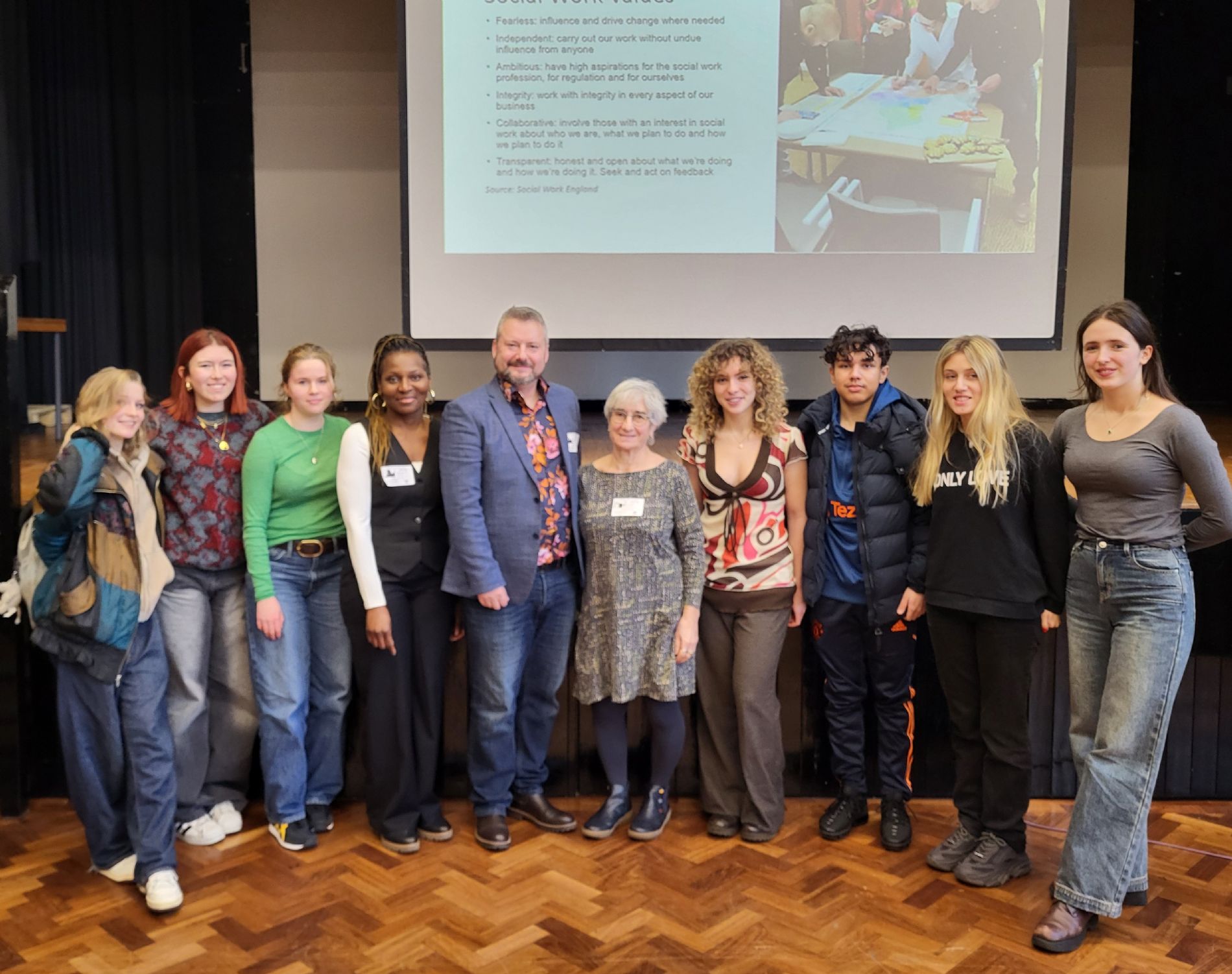Assembly Speaker - 22 January
Unveiling the Heart of Social Work: Insights from Richmond Fellowship Charity
Robert Templeton: Executive Director of Operations, Housing, and Quality The Richmond Fellowship
Juliana Manjoro: Registered social worker and residential home manager responsible for Richmond Fellowships' registered services in North London
Adi Cooper OBE: Registered social worker and previously Director of Adult Social Services. The independent chair of 2 safeguarding adults boards and the care and health improvement adviser for London for the Local Government Association (LGA) and Association of Directors of Adults Social Services (ADASS). She is also a visiting professor at the University of Bedfordshire and a safeguarding adults' consultant.
In a recent assembly, hosted by the Richmond Fellowship Charity, key figures in the social work sector shed light on the vital role they play in promoting social change, development, and mental health recovery. Robert, the Director of Operations, Juliana, a Care Home Manager, and Adi, a CSG alumni, shared their experiences and perspectives, offering a glimpse into the dynamic world of social work.

Robert emphasised the prevalence of social work in England, with a staggering 99,191 social workers as of November 2021. Notably, about 65% of these professionals work with adults. The demographic makeup reveals an industry where 82.6% identify as female, 17.3% as male, and the average age is 45. A variety of nationalities contributes to the diversity, notably, Zimbabwean and Irish individuals form a substantial part of those receiving assistance.
The values driving social work were outlined as fearlessness, independence, ambition, integrity- all driven by a collaborative and transparent work ethos.. These principles form the bedrock of a profession that aims to empower and liberate individuals, grounded in social justice, human rights, and collective responsibility.
Juliana, a care home manager originally from Zimbabwe, shared her remarkable journey. After arriving in the UK, she pursued a business degree but found her calling in social work during university. With 25 years of experience, Juliana transitioned from statutory social work to the Richmond Fellowship Charity, emphasising the demanding yet fulfilling nature of her role. Managing a care home involves constant checks on patients' mental and physical health, advocacy for various causes, and adapting to the sudden challenges posed by such as the COVID-19 pandemic.
Adi Cooper, a former CSG student from the 60s and an influential figure in social work, highlighted the diverse nature of the profession. Contrary to common misconceptions, social work is not solely about removing children from their homes. Adi's career spanned multiple roles, including a GP and 5 part-time positions, including chairing boards, professional coaching and mentoring. She underscored the importance of values such as feminism, anti-racism, and anti-imperialism in shaping her commitment to social work. Adi's instrumental role in closing down Orchard Hill Care Home, addressing endemic abuse, and advocating for safeguarding policies showcased the impactful changes social workers can achieve over time.
Both Juliana and Adi spoke about the emotional demands of the profession, especially during the COVID-19 pandemic when restrictions limited patients' contact with their families. Despite the challenges, all the speakers agreed that social work offers a continuous learning experience, diverse perspectives, and the potential to influence policies and safeguarding measures.
In conclusion, the insights from Robert, Juliana, and Adi offered a compelling narrative of the multifaceted world of social work.
Samir
Senior Prefect